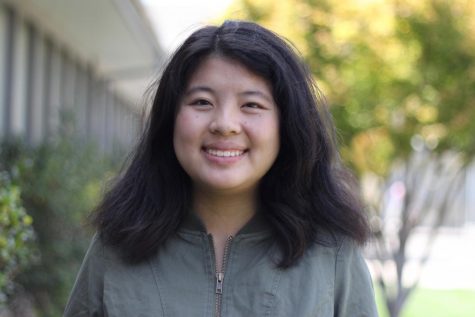English Teachers Incorporate Mindfulness in the Classroom
As the bell rings and students file into the classroom, English teacher Alicia Triana instructs her students to close their eyes and put their heads down. Soon, quiet music and a steady rhythm of students’ deep breaths are the only sounds in the classroom. After a few minutes, students open their eyes and the class begins.
Teachers such as Triana are beginning to implement new mindfulness practices in their classes as a result of a recent mindfulness conference and mindfulness lessons offered to teachers at school. Triana finds breathing exercises to be helpful for her classes, especially when her students fully understand the intention of the exercise.
“I try to use it when I can be really clear why we’re breathing, to be able to explain to the students what it is your body is physically doing when you actually remember to breathe,” Triana said. “[An important aspect is the] physical effect [mindfulness] has on your brain, your emotions, and your muscles. [Students] get more out of it when I’m articulate about [why the exercise is useful].”
Sophomore Kaua’i Wu believes mindfulness effectively increases focus and has been able to feel less anxious about tests due to exposure to the exercises in Triana’s class.
“[We are asked to] try to think of things other than your schoolwork, and that lowers the amount of stress you have,” Kaua’i said. “I think mindfulness in general is good especially if you are feeling stressed before a test [because] if you don’t think about the test before you start, it actually helps you do better.”
On October 15 and 16, several teachers, including Triana and Bennett, attended an EQ Schools Conference with the intention of learning more about mindfulness and its advantages for teachers’ and students’ well-being.
The conference is held twice a year, during the fall and spring, and many teachers also attended the EQ Schools Conference in April of last year. EQ Schools, an organization of mindfulness educators, focuses on improving teachers’ ability to improve the health of their students through positive psychology and emotional intelligence.
During the conference, teachers attended various speakers of their choice, each focusing on different aspects of mindfulness. Teachers also participated in games, yoga and positive psychology practices. By the end of the conference, teachers learned to lead breathing exercises and understand the benefits behind mindfulness to help students approach stress at school.
For Triana, an activity about cognitive behavioral therapy, or the analysis of thought patterns, was particularly influential. EQ Schools founder Roni Habib led the activity and aimed to give teachers a better understanding of the brain to improve thinking processes and create ways of problem solving.
“He had people reflect on some area in their life that they are struggling with and asked them to articulate that struggle through a voice [that] he calls [their] inner gremlins,” Triana said. “Then he had [them] look at [the struggle] from a cognitive behavioral therapy perspective, which involves looking at [their] thinking and identifying patterns in [their] thinking.”
In English teacher Margaret Bennett’s World Literature Honors class, sophomore Sophia Hwang found that an exercise called Ocean Breath especially helped her focus. Bennett implemented the practice after hearing it from the conference, and the exercise consists of meditative breathing to the sound of ocean waves, which provides a calming effect.
“Ocean Breath stopped me from overthinking things, and I could focus on what was happening then and there,” Sophia said.
Bennett started introducing breathing exercises and providing information on mindfulness to her students after telling them about her experience at the conference. She believes that mindfulness can be used throughout life in a variety of situations.
“I did a few [mindfulness exercises after the conference], and [the feedback] was very positive,” Bennett said. “I think that [mindfulness exercises] are life techniques, and if it’s going to increase the focus and vibe in our room, then it’s something that I think is worthwhile spending a couple minutes on.”
For students, Triana believes mindfulness can be an effective way to create greater interest in school besides getting good grades, and she believes that all students can benefit from being aware of their emotions, even if they are skeptical of this way of thinking.
“A lot of students are craving a deeper reason for [being in school], and teachers can connect back to who they are as people and [create that reason] for them,” Triana said. “A few students are a little reluctant to think of things in that way, but there’s a part of me that thinks that maybe it’s because if they take that risk… then it means that they have to be open and vulnerable.”




